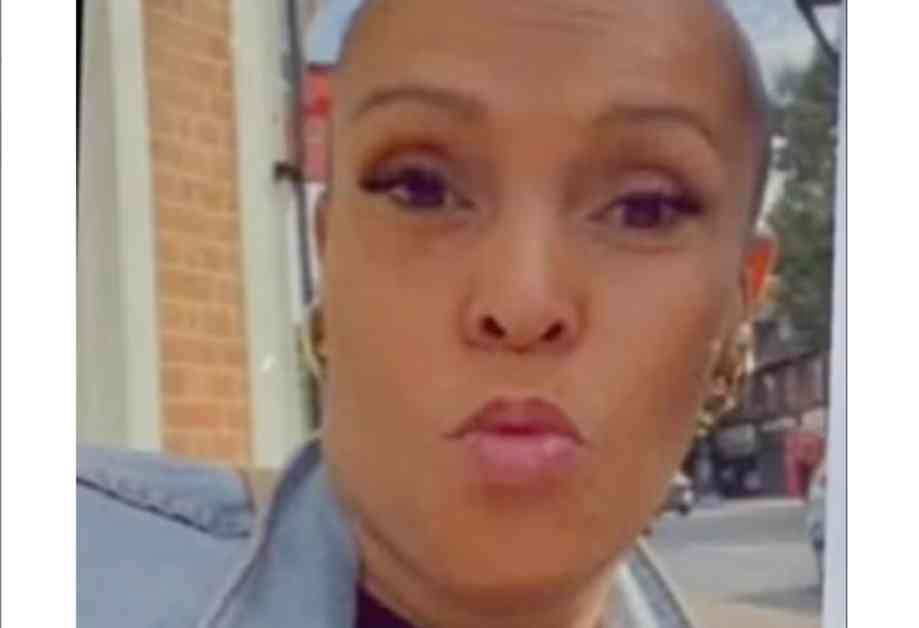Family Fights for Justice in Wake of Tragic Murders by Abusive Ex
A devastated family is demanding justice for their loved ones, Naomi Hunte and Fiona Holm, who were brutally murdered by their abusive ex-boyfriend, Carl Cooper. Cooper, a 66-year-old handyman, was sentenced to 35 years in prison for the heinous crimes, which occurred within a span of just 16 months. Both women had reported Cooper to the police for domestic abuse prior to their tragic deaths, raising serious questions about the authorities’ handling of the situation.
Missed Opportunities and Failures of the Police
The family of Fiona Holm has revealed that the police missed numerous opportunities to intervene and prevent the murders at the hands of Cooper. Despite being labeled as an “evil and controlling” individual, Cooper’s history of violence against women was not taken seriously enough by law enforcement. Naomi Hunte had made four separate complaints to the police about Cooper’s abusive behavior before she was brutally stabbed to death on Valentine’s Day in 2022.
The Right to Know and Clare’s Law
Under the “right to know” section of Clare’s Law, also known as the Domestic Violence Disclosure Scheme, police officers have the authority to disclose information about an abuser’s history if they believe a new partner’s safety is at risk. However, a recent report revealed that the Metropolitan Police (Met) failed to effectively utilize this law, making only 3.3 disclosures per 100,000 people, well below the national average of 17.5. This failure to act has left many questioning why women are not being adequately supported and protected when they come forward with concerns about their abusers.
Calls for Prevention and Accountability
Domestic abuse charity Refuge has condemned the “woefully low” disclosure rates and emphasized the urgent need for police forces to prioritize prevention and safety planning for at-risk individuals. The focus must shift towards listening to women’s voices, taking their concerns seriously, and implementing measures to protect them from harm. The tragic deaths of Naomi Hunte and Fiona Holm serve as stark reminders of the systemic failings in the response to domestic abuse cases, highlighting the urgent need for accountability and reform within law enforcement agencies.
Damning Revelations in the Cooper Murder Case
In a series of shocking revelations, it has come to light that an anonymous 999 caller reported Cooper for murdering a woman around the time Fiona Holm went missing. Tragically, the call was wrongly classified as a hoax, allowing Cooper to continue his reign of terror unchecked. Cooper’s history of alleged violence against women, including a previous charge of attempted murder in 1999, further underscores the failures of the criminal justice system to protect vulnerable individuals from repeat offenders like him.
Investigations into Police Misconduct
The Met’s professional standards department is currently investigating four officers for misconduct in their handling of the cases involving Naomi Hunte and Fiona Holm. The mishandling of crucial information and failure to act on warning signs have raised serious concerns about the effectiveness of police protocols in addressing domestic abuse cases. The Independent Office for Police Conduct (IOPC) has been called in to oversee the investigations, highlighting the gravity of the situation and the need for transparency and accountability within law enforcement agencies.
Family’s Quest for Closure and Justice
The family of Fiona Holm has been left shattered by the tragic loss of their beloved daughter and sister, whose body has never been found. Despite their relentless efforts to seek justice for Fiona and hold Cooper accountable for his heinous crimes, they continue to face obstacles and challenges in their pursuit of closure. The emotional toll of not knowing the whereabouts of Fiona’s remains has taken a significant toll on her loved ones, who remain determined to uncover the truth and ensure that justice is served.
The Impact of Domestic Violence on Communities
The devastating effects of domestic violence extend far beyond the immediate victims, impacting families, friends, and entire communities. The deaths of Naomi Hunte and Fiona Holm serve as stark reminders of the urgent need to address the root causes of domestic abuse and implement measures to prevent such tragedies from recurring. Domestic violence-related deaths are not isolated incidents but rather a reflection of systemic failures in addressing gender-based violence and providing adequate support to survivors.
Calls for Systemic Change and Accountability
Domestic violence campaigners and advocacy groups have called for urgent action to address the systemic failings in the response to domestic abuse cases. The deaths of Naomi Hunte and Fiona Holm were preventable, highlighting the need for a comprehensive overhaul of policing practices and protocols to better protect victims of abuse. The government’s commitment to halving violence against women and girls within the next decade must be accompanied by tangible reforms in the criminal justice system and sustained support for survivors of domestic violence.
Moving Forward: Seeking Closure and Healing
As the family of Fiona Holm continues their quest for justice and closure, they remain steadfast in their determination to hold Cooper accountable for his crimes and ensure that Fiona’s memory is honored. The long road to healing and recovery will undoubtedly be fraught with challenges, but the family’s resilience and unwavering commitment to seeking justice for Fiona serve as a beacon of hope in the face of adversity. The legacy of Naomi Hunte and Fiona Holm lives on in the fight for a more just and equitable society, where victims of domestic violence are heard, believed, and supported in their quest for justice.












